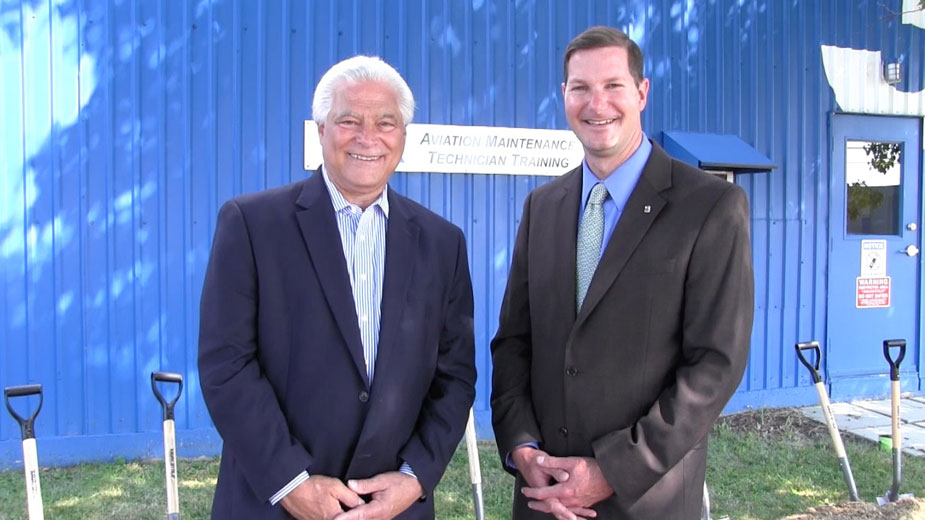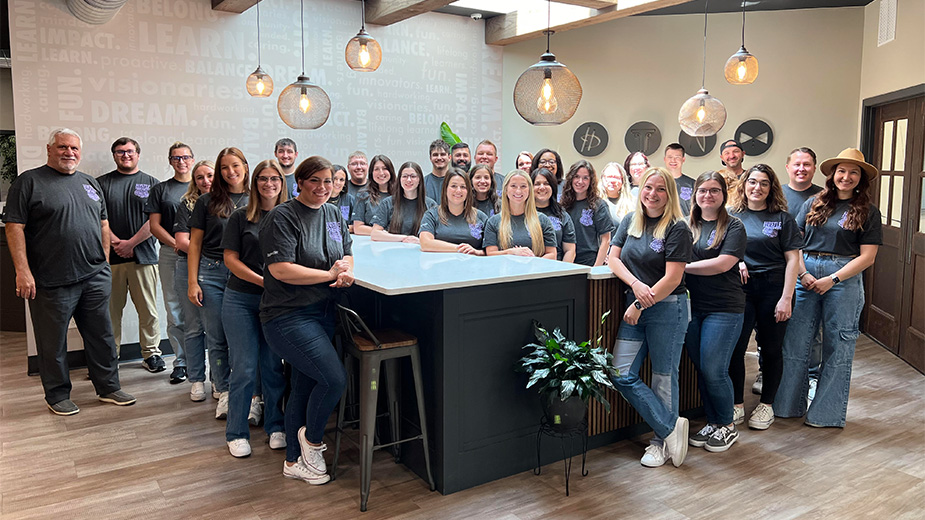Institute of Aeronautics Expands to Meet Demand
VIENNA TOWNSHIP, Ohio – Growth in the aviation industry and a massive wave of impending retirements are driving – or piloting – expansion at the Pittsburgh Institute of Aeronautics’ branch campus here.
The institute, which opened its branch campus here a decade ago, broke ground Tuesday on an 8,500-square-foot expansion to its space at Youngstown-Warren Regional Airport.
“A looming shortage” of certified maintenance mechanics is “on the horizon,” an urgent need that brought the institute of aeronautics to the airport a decade ago, remarked John Graham III, president and CEO. The school, in operation since 1929, trains aviation maintenance mechanics and aviation electronics technicians. The two-story expansion is expected to be completed nine months, he said.
The $1.5 million project will include renovation of the Pittsburgh Institute of Aeronautics existing space.
“The location is good because there are not as many technical schools operating here as the population can possibly benefit from,” said Suzanne Markle, executive vice president and chief operating officer. The branch has provided educational opportunities for dislocated workers in addition to younger students.
“The students who are here tend to have grown up in the types of families where they might have been turning wrenches with dad or working on cars or getting into mechanical things,” she said. “To take that knowledge and build upon it to get into the aviation industry is a very smooth transition for them.”
As the Federal Aviation Administration reminds the institute from time to time that “The safety of the national aerospace system depends upon what happens here,” Graham said.
David Mitchell, director of the Youngstown campus, detailed the demand at the ceremony held just before the groundbreaking. An analysis by the Atlanta Journal Constitution forecasts the aviation industry will need 34,000 new aircraft by 2031, and a pilot and technical outlook by aviation giant Boeing projects that commercial airlines will require 601,000 new aircraft maintenance technicians over the next 20 years to maintain that fleet.
At the same time, an industry magazine estimates that 76.6% of aviation mechanics and technicians are ages 50 and older. “Fully three-fourths of the licensed population could retire in the next 15 years,” Mitchell said. In the next few years, he continued, there will be 10,000 openings annually, increasing to 40,000 openings a year.
“Meeting this exponential demand for personnel will require facilities that rely on the latest digital technology to match the learning requirements of the new generation,” he remarked. “Here today, PIA’s making the investment in education that will open the door through which opportunity is already knocking.”
Over the past decade, nearly 500 students have graduated at the Youngstown campus, Markle said.
“Graduates from this campus have gone far away around the globe,” Graham said. “Many have stayed as local as right next door” with Winner Aviation, the airport fixed-base operator, he added.
Winner Aviation Chairman and CEO Rick Hale said he has hired at least 10 mechanics and technicians out of the institute. The campus “definitely gives us access to talent that’s fresh and the ability to put people in while we need them,” he said.
Kyle McClellan of Mecca is studying to be an aircraft mechanic and work on everything from helicopters to blimps to airplanes – “anything that flies,” he said. He started at the institute for aeronautics last August and is preparing to finish there in December. His interest in aircraft dates back to age 14 when he and his father flew radio-controlled models.
“There’s a lot of opportunities, definitely,” he said.
In addition to serving a an anchor tenant at the airport, the Pittsburgh Institute of Aeronautics’ new construction will spur additional activity, said John Moliterno, executive director of the Western Reserve Port Authority, which operates the airport.
“We’re having opportunities and conversations right now with other entities about hangars and other things that are going to be done at this airport. Certainly this excites them as well,” he said. “It gets people much more excited in what we have going on here.”
Pictured above: John Moliterno, executive director of the Western Reserve Port Authority, and John Graham III, president and CEO of the Pittsburgh Institute of Aeronautics, at Tuesday’s press event.
Copyright 2024 The Business Journal, Youngstown, Ohio.


